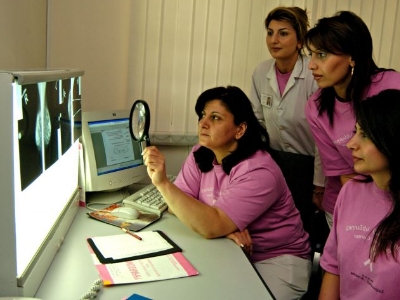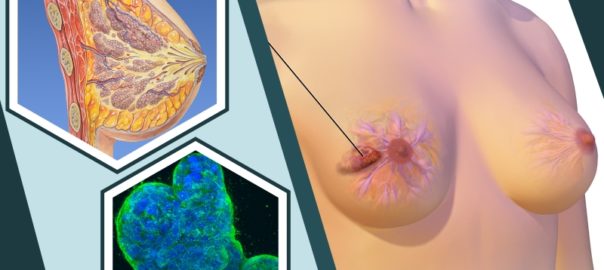There are many types of breast cancer and many different ways to define them. The different type of breast cancer is defined by where in the breast they begin and how much they have grown or spread. These types of breast cancer you’ve been diagnosed with will help you and your doctor decide on the best treatment options for you.
What Is Breast Cancer?
Breast cancer is a disease where cells in the breast grow out of control. This type of cancer can begin in different parts of the breast. A breast is made up of three main parts: lobules, ducts, and connective tissue. Most breast cancers begin in the ducts or lobules.
Types of Breast Cancer
A type of breast cancer is determined by the specific cells in the breast that become cancer.
1. Invasive Breast Cancer
Invasive breast cancer has spread into the surrounding breast tissue. The two most common types of invasive breast cancer are defined by where in the breast they begin to grow:
- Invasive ductal carcinoma (IDC)
- Invasive lobular carcinoma (ILC)
Some types of invasive breast cancer have features that affect how they develop and how they are treated.
2. Non-Invasive Breast Cancer
When breast cancer is called non-invasive it means it has not spread beyond the breast tissue where it started. There are two main types of non-invasive breast cancer:

- Ductal carcinoma in situ (DCIS), is non-invasive breast cancer that has not spread outside the milk ducts where it started.
- Lobular carcinoma in situ (LCIS), is non-invasive breast cancer that has not spread outside the lobules where it started.
3. Cancerous Phyllodes Tumors of the Breast
Phyllodes tumors of the breast are rare. Most phyllodes tumors are benign but about 25% are cancerous.
What Are The Symptoms Of Breast Cancer?
- Redness or flaky skin in the nipple area or the breast
- Pulling in of the nipple or pain in the nipple area
- New lump in the breast or underarm (armpit)
- Irritation or dimpling of breast skin
- Any change in the size or the shape of the breast
- Pain in any area of the breast
- Nipple discharge other than breast milk, including blood
- Thickening or swelling of part of the breast
Treatment for Breast Cancer
Treatment for breast cancer depends on the type of breast cancer you have. Your doctor also considers your overall health and your preferences. Most women undergo surgery for breast cancer and many also receive additional treatment after surgery. Chemotherapy might also be used before surgery in certain situations.
The medication you can use if you have breast cancer:
- Letrozole – this is in a class of medications called nonsteroidal aromatase inhibitors. Letrozole works by decreasing the amount of estrogen produced by the body. This can slow or stop the growth of some types of breast cancer cells that need estrogen to grow.








